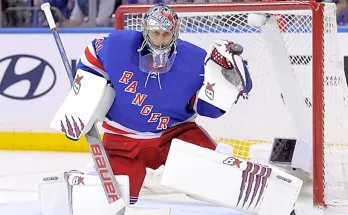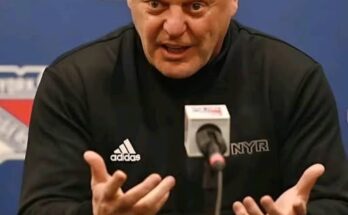The Untold Story of How Mookie Betts Became Freddie Freeman’s Anchor in Los Angeles
When Freddie Freeman signed with the Los Angeles Dodgers, the move sent shockwaves through Major League Baseball. Freeman, a former MVP and the face of the Atlanta Braves for more than a decade, leaving his longtime home for the bright lights of Hollywood was a seismic shift that no one could ignore. For Freeman, it wasn’t just a professional decision; it was a deeply personal one. He had to walk away from the only organization he had ever known, a team where he built his career, forged lifelong relationships, and ultimately delivered a World Series title. The transition wasn’t easy, and he admitted as much in candid interviews after the deal. The pressure of living up to a massive contract, adjusting to a new city, and integrating into a clubhouse full of established stars could have been overwhelming for anyone. But there was one person who made that process smoother than Freeman ever expected: Mookie Betts.
The story of how Betts helped Freeman acclimate to Los Angeles is one of those rare behind-the-scenes narratives that showcases the human side of baseball. It’s easy to see these athletes as superhuman figures, immune to doubt or discomfort, but the reality is very different. Freeman wasn’t just changing uniforms; he was uprooting his entire life. Atlanta wasn’t just where he played; it was home. His family, his friends, his routines—all were tied to that city. Leaving that behind to start over in Los Angeles, a city that can feel intimidating even for seasoned celebrities, was daunting. And this is where Betts stepped in, not with grand gestures or public displays, but with quiet leadership and genuine friendship.
Mookie Betts, already an MVP and a World Series champion in his own right, understood the weight of expectations in Los Angeles. When he arrived from Boston in 2020, he faced similar scrutiny. He knows what it’s like to carry the hopes of a franchise on your shoulders while trying to find a sense of belonging in a new environment. That shared experience became the foundation for his bond with Freeman. From the very beginning, Betts made it his mission to ensure that Freeman never felt like an outsider. He invited him to team gatherings, introduced him to the nuances of LA culture, and, perhaps most importantly, made sure that Freeman understood he didn’t need to change who he was to fit in.
In interviews, Freeman has spoken glowingly about Betts’ influence, describing him as someone who always knows the right thing to say at the right time. Betts isn’t the loudest voice in the room, but his presence commands respect, and his words carry weight. When Freeman was dealing with the emotional fallout of leaving Atlanta—a situation that included some very public tension with the Braves’ front office—Betts was there to listen without judgment. That kind of support might seem simple, but in a clubhouse filled with egos and expectations, it’s invaluable. It allowed Freeman to process his feelings, regain his focus, and channel his energy into what he does best: playing elite-level baseball.
What makes this relationship even more remarkable is how it translated onto the field. Chemistry is often an overused term in sports, but in this case, it’s entirely appropriate. Betts and Freeman quickly developed a mutual respect that elevated their games. Their approach to hitting, their commitment to preparation, and their shared belief in doing things the right way created a synergy that made the Dodgers’ lineup even more dangerous. When you watch them interact during games—sharing a laugh after a big hit, exchanging tips in the dugout—it’s clear this isn’t just a professional alliance; it’s a genuine friendship. And that friendship has paid dividends for a Dodgers team that prides itself on its culture as much as its talent.
For fans, it’s easy to overlook these dynamics. We see the home runs, the gold gloves, the highlight-reel plays, but we rarely see the conversations in the locker room or the quiet moments of encouragement that keep a team together. Freeman’s success in Los Angeles didn’t happen in a vacuum. Yes, his talent speaks for itself, but his ability to feel comfortable and confident in his new surroundings played a huge role—and Mookie Betts was instrumental in making that happen. This is the kind of story that reminds us why leadership matters, why character matters, and why, in the end, baseball is as much about people as it is about performance.
It also speaks volumes about Mookie Betts’ impact beyond the stat sheet. Since joining the Dodgers, Betts has been more than just a superstar; he’s been a culture-setter. He leads by example, but he also knows when to step in and offer guidance, when to crack a joke to lighten the mood, and when to provide a steady voice in times of uncertainty. For Freeman, that steady voice made all the difference. And if you ask anyone in the Dodgers organization, they’ll tell you that this kind of leadership is one of the reasons the team remains a perennial contender, even as rosters evolve and new challenges emerge.
As for Freeman, his numbers since joining the Dodgers speak for themselves. He didn’t just adjust to life in Los Angeles; he thrived. He became an anchor in the lineup, delivering clutch hits, playing elite defense, and bringing the same professionalism that defined his career in Atlanta. And while his talent is undeniable, the comfort and confidence he gained through his relationship with Betts undoubtedly played a role. It’s a testament to the power of connection in a sport that can often feel isolating despite its team-oriented nature.
In the grand scheme of things, this story is about more than two All-Stars finding common ground. It’s about resilience, adaptation, and the importance of having the right people in your corner when life throws you a curveball. It’s about the human side of baseball—the side that doesn’t show up in box scores but makes all the difference in the world. For Dodgers fans, it’s another reason to appreciate what they have: not just a roster stacked with talent, but a clubhouse filled with leaders who understand that winning starts with relationships.
When history looks back on this era of Dodgers baseball, the headlines will highlight the championships, the records, and the individual accolades. But behind those achievements are stories like this one—stories of teammates helping each other navigate uncharted territory, of friendships forming under the brightest lights, of leaders like Mookie Betts stepping up in ways that go far beyond what happens between the lines. And for Freddie Freeman, that support turned a daunting transition into a rewarding new chapter, proving once again that even in a game built on numbers, the most important things can’t always be measured.



